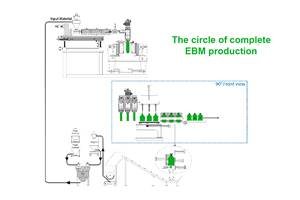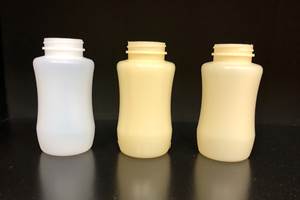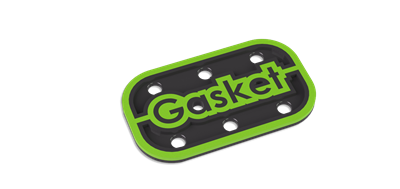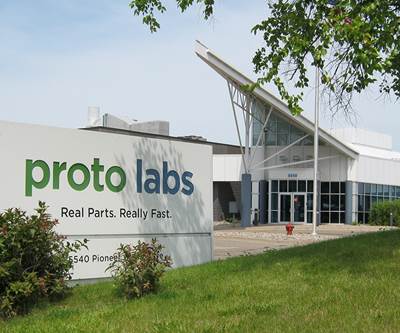Updated: Protolabs Pandemic Response—7.6 Million Parts and Counting
At first a stop-gap for interrupted Chinese production then a bulwark of emergency medical production at home, Protolabs’ response to coronavirus continues, nearly 8 million parts and counting.
Protolabs first felt the impact of the Covid-19 pandemic before it was a pandemic. In January, the global provider of custom prototypes and quick-turnaround parts began fielding calls from companies struggling to source production after normal suppliers in China shuttered as that country dealt with what was still a regional outbreak.
The supply chain interruption intensified when on Monday Feb. 10, China’s factories, which were expected to restart operations after the traditional 2-week break following the Lunar New Year, remained shuttered.
“Typically manufacturers or product developers are going into the Chinese New Year with a safety stock because they know after the new year that they can start ordering again and parts will start showing up,” explains Gurvinder Singh, global product director for injection molding at Protolabs. “This time, the new year is over but the factories didn’t open, so we were already seeing a surge due to the supply chain disruption. All of a sudden, everyone was scrambling because they had depleted all of their safety stocks.”
High Volume, High Mix
Singh separates the company’s Covid-19 output into three distinct buckets—testing kits, personal protective equipment (PPE), and lifesaving (ventilator components). The unique challenge that the outbreak has posed to manufacturers in many ways plays to Protolabs’ strengths, according to Singh, as well as pushing it outside its comfort zone.
“Over all these years, we built our business on low volume and high mix,” Singh says, “so what we’re really good at is making 1000 molds per month. That makes us good at attacking different components of this crisis. So not only can we quickly help making shields, but we can also quickly help with testing kits and we can also quickly help with cutting molds for key life-saving ventilators.”
While Covid-19 production has been high mix, it has definitely not been low volume. Singh says that Protolabs often positions itself as bridge tooling, an interim step as production volumes increase and piece-part price dictates decisions, often including the choice to move offshore. “But that’s not the case right now,” Singh says. “There is the need for volumes and there’s the need for that to be onshore because of what’s happening with everything going on lockdown across the globe.”
Capacity Crunch
To enact its low-volume high-mix strategy, Protolabs deploys what it calls infinite capacity. While high capacity utilization rates for most manufacturers are considered a good thing, for Protolabs they’re a hindrance. “We actually run at very low utilization on machines so that we have capacity to address speed,” Singh says. Calling it one the company’s key value propositions, Singh notes that infinite capacity means keeping machinery open to grant it the agility to run urgent orders when needed. “Right now, I can say our infinite capacity model is a little strained because we’re just doing a lot more to be able to support thee Covid-related jobs. But infinite capacity is a key reason why we were able to quickly scale and help our customers as well. We didn’t have our machines tied up to long-running jobs.”
A Sense of Pride
Given the urgency of the situation, Singh says Protolabs has bumped Covid-related jobs to the top of the lineup. This means for new molds, depending on the size of the part, the company is cutting tools within one day, and on average able to ship part samples in 3 to 5 days. Speed has always been part of the equation for the company, but in the current moment it’s not just expediting time to market, it’s saving lives.
“I would say, we’re really fortunate, and we really feel a sense of pride, to be helping out in all these different categories,” Singh says.”
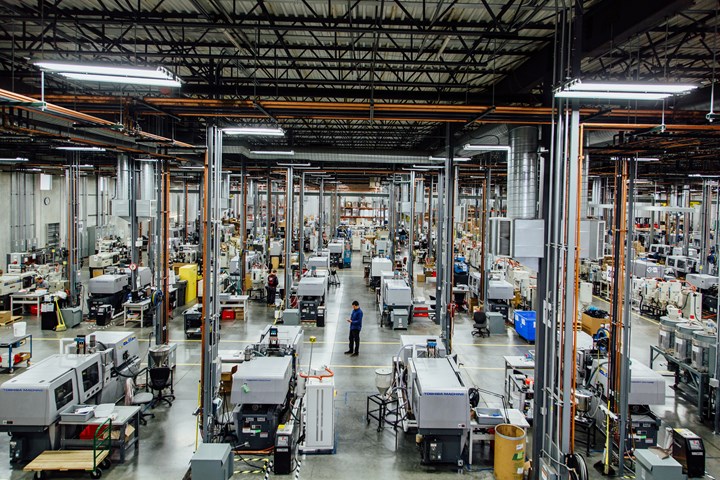
Protolabs Rosemount, Minn. injection molding operation has been pushed into high output by the coronavirus outbreak.

Related Content
US Merchants Makes its Mark in Injection Molding
In less than a decade in injection molding, US Merchants has acquired hundreds of machines spread across facilities in California, Texas, Virginia and Arizona, with even more growth coming.
Read MoreGet Color Changes Right In Extrusion Blow Molding
Follow these best practices to minimize loss of time, material and labor during color changes in molding containers from bottles to jerrycans. The authors explore what this means for each step of the process, from raw-material infeed to handling and reprocessing tails and trim.
Read MoreHow to Extrusion Blow Mold PHA/PLA Blends
You need to pay attention to the inherent characteristics of biopolymers PHA/PLA materials when setting process parameters to realize better and more consistent outcomes.
Read MoreFor Extrusion and Injection-Blow Molders, Numerous Upgrades in Machines and Services
Uniloy is revising its machinery lines across the board and strengthening after-sales services in tooling maintenance, spare parts and tech service.
Read MoreRead Next
Proto Labs Finds Millennials Upbeat on Manufacturing’s Future
Survey indicates increased optimism and changing perceptions about the industry among those from their late teens to late 30s.
Read MoreTwo-Component Parts in 15 Days Or Less
Proto Labs has added a quick-turn overmolding service in response to customer requests for cost-effective prototyping or low-volume production of overmolded parts.
Read MoreProtolabs CEO Discusses the Digital Age of Manufacturing
As the company reaches its 20-year milestone, Plastics Technology talked with Protolabs CEO Vicki Holt about what’s next for the innovative company.
Read More



















